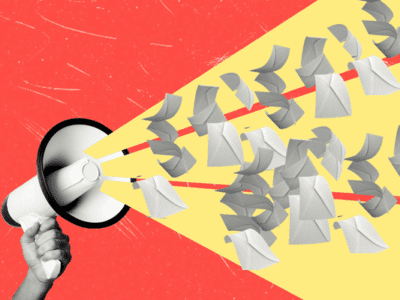Carrots Are More Durable Than Sticks
Laws like the Inflation Reduction Act may have more sticking power than regulations.
The Big Bad Wolf came to the house of sticks that EPA had built. “I’ll huff and I’ll puff and I’ll blow this house down.” And so, he did. Then he came to the house of carrots built by Congress. He huffed, and he puffed, and then he huffed some more, but he couldn’t blow that house down.
This little fairytale illustrates an important point: a major advantage of spending-based programs (“carrots”) such as the Inflation Reduction Act is that they may be more robust politically than regulations (“sticks”). Stability is especially important for climate policy. We want governments and firms to make major infrastructure investments, which will be less attractive if policies fluctuate.
This little tale is based on research that subsidies help grow interest groups, especially in the form of clean industries, which then support further regulation. In a paper in the journal Science, my colleague Eric Biber and his coauthors surveyed the trajectory of climate policy across the globe. They found that subsidies and tax credits often laid the foundation for later regulation. According to this study, subsidies “nurture the growth of new interest groups friendly to decarbonization and encourage existing interest groups to shift their relationship to decarbonization.“ Thus: “Green industries are political allies in the development of more stringent climate policy . . . .” In terms of politics, they say, “Carrots buy sticks.”
Just as carrots buy sticks, they also build robustness. For better or worse, it’s hard to repeal subsidies and tax credits. We’re seeing that right now in Congress. There’s been a lot of talk by Trump and others of blowing away the IRA. But many billions of dollars of IRA investments are being spent in Republican congressional districts. And this has had an effect.
On August 7, eighteen GOP House members sent a message to House Speaker Mike Johnson: Repealing IRA tax credits could undermine growth in the energy sector. The House Freedom Caucus responded angrily but apparently to no avail. On September 18, Mike Johnson said about IRA repeal that “you’ve got to use a scalpel and not a sledgehammer.” The current GOP majority isn’t famous for its use of scalpels, so this is a noteworthy remark.
Of course, there are no guarantees in politics. It’s still possible that a Republican trifecta could result in IRA repeal, but that’s looking increasingly unlikely. It’s far more certain that Trump would roll back Biden’s climate regulations. As experience in other countries shows, even emission restrictions in statutory form can be repealed. Subsidies won’t solve the climate crisis on their own, but they provide a solid economic and political foundation for climate policies of all kinds. Depending on how today’s vote comes out, we may really need that extra robustness.







Reader Comments